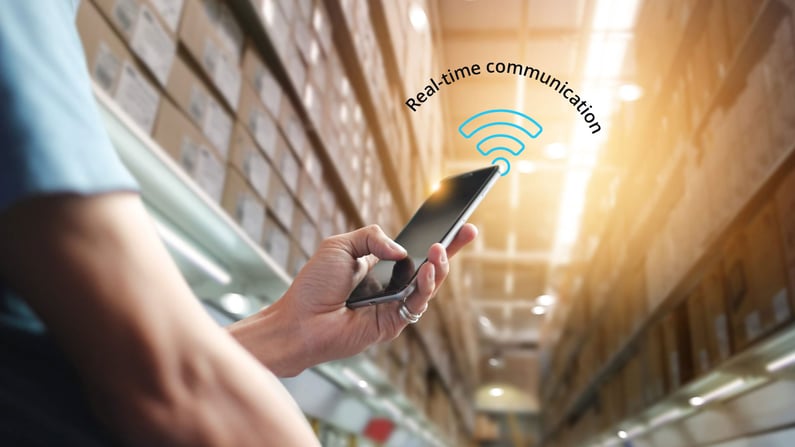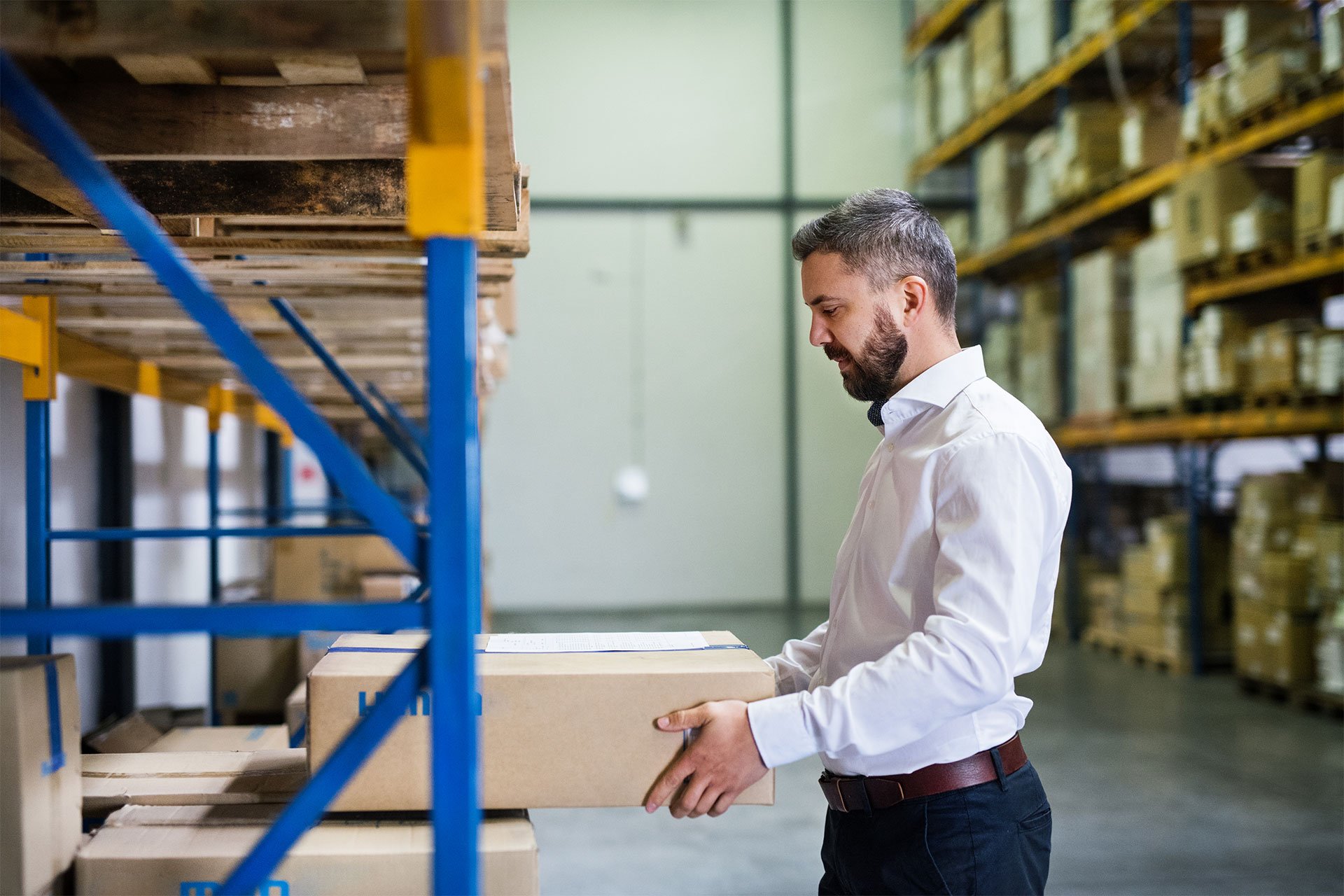Learn the analysis of trends in technology, consumption, and people that are transforming supply chains and revolutionizing work worldwide in 5 points.
We are already approaching the end of 2021 and one undeniable fact for logistics managers is that supply chains have changed a lot and will continue to evolve.
Unprecedentedly, the global pandemic has forced these managers to look at their supply chains, and try to keep up with an ever-changing environment.
Now, the biggest concern of the supply chain agents is to keep the supply chain flowing, thinking about strategies that benefit the market and also increasingly attentive and demanding customers.
In such disruptive times, investments in technology have become the way to ensure that safe medicines, quality food, and other everyday products reach those who need them at the right time. And meet relevant quality standards.
Solutions in augmented reality (AR), artificial intelligence (AI), cloud and automation build smart workflows and responsive chains, interconnected by the power of data.
But won't all that automation and machine learning end up taking people out of service?
No, on the contrary! By applying these trends - which have now become a certainty on the market - will help people gain strategic insights based on a wealth of data.
Forbes digital edition published the article Automation Is The Future Of Warehousing in 2020, highlighting an important statement: AI is radically changing human work, complementing and broadening our capabilities.
Therefore, in supply chains, it is possible to think of new ways of working that overcome challenges and meet the expectations of new consumer profiles while respecting the demand for sustainability.
So learn about 5 trends that are connecting smarter workflows across a network of partners who can now come up with quick responses to future unforeseen fluctuations:
1. New technology that helps people in the supply chain

Automation has become a reality in the world, but businesses, as well as supply chains, depend on people, and there is no denying that.
The supply chain requires autonomy, relying on engaged people and new technologies that respond to change with agility, based on hard data.
Let's create an example, a case to illustrate. Think in the context of today's world and Covid-19. In just a few months, vaccines have become an essential medical emergency worldwide. Moreover, they have been elevated to the status of protagonist in political debates and economic negotiations.
Not surprisingly, technologies that ensure that medicines are visible throughout the production chain help public and private managers maintain the efficiency and accuracy of the vaccines. Errors are then minimized and problems such as counterfeiting and product detour are eliminated.
Can you imagine how complicated it would be for a team to coordinate the distribution of millions of vaccines in cross docking processes without traceability technologies?
Humans are not machines, but they can certainly benefit from them!
2. AI, IoT and Big Data: Upcoming technologies that are not a shot in the dark
Yes, we have already discussed that the logistics landscape is constantly changing in the introduction to this text. But digitalization can be a stabilizer for your chain.
You may even think that investing in the latest technologies could be risky in a changing environment, but think again! The pharmaceutical industry, for example, postponed global traceability until the challenges became even more serious.
Increasing use of emerging technologies is an integral part of the digitization of logistics and distribution management operations. By interacting with new data generated by such technologies, people are now fixing errors, reducing risks, and boosting productivity.
Managing inventory in warehouses, for example, is simpler when employees have real-time movement guidance based on augmented reality (AR).
By empowering their employees and basing their work on hard data, companies produce insights that decrease inefficiency and streamline workloads.
3. Faster responses for resilient chains
As presented in the previous trend, technology makes our work much easier.
Better than reading the theory, is understanding it in practice:
By basing warehousing and replenishment work on machine learning, people create faster responses to disruptions in the supply chain.
By documenting information and sharing data with your WMS, ERP, or LMS management system, work becomes more flexible and employees can communicate instantly.
The result? Greater control and enhanced business growth.
4. Generation Z: The consumer experience will define your success
Consumer culture is changing fast and naturally this impacts the supply chain and the entire industry.
More demanding about what they consume, and with the internet in their hands, consumers want access to information about each product. And 100% transparency is the key.
In addition, online sales are only growing and e-commerce is taking over the market. In that regard, the demand for product safety in distance selling is increasing.
By employing customer-responsive strategies and using technology in the process, it is possible to collect valuable data on customer behavior that will certainly help the company's development.
5. 360° traceability of the supply chain: transparency, ethics and sustainability

You may have noticed that the word "traceability" has appeared a lot around here. That’s because:
Traceability can be the result from applying performance technologies. And transparency is a direct consequence of traceability.
As we discussed in the previous topic, consumers are more embedded in market relationships than ever before!
And if sustainability is, for you, not something important, do not forget that for the Z generation, which includes people born up to the year 2010, the debate about sustainable consumption has become more than a trend, it is now considered a duty.
Therefore, your consumers expect a production and distribution network that is safe, but above all sustainable.
Investing in innovation to build resilient infrastructure; ensuring sustainable consumption and production patterns; and reinforcing the goal of sustainable development in your partnerships seems like a good place to start.
And we know that distribution is a critical point in the supply chain and one of the links that most records and exchanges information. Aside from these characteristics, it is a moment that, given the transportation matrix, ends up producing an environmental impact.
As a result of this activity, each liter of diesel that fuels the vehicles emits 2.5 kg of CO2. Multiply this by large fleets that run thousands of kilometers a month. The damage soon adds up!
Technology helps companies keep correct data and connected to the chain, without forgetting partners and suppliers, who need to share the same goal.
Therefore, possible points of improvement can be optimized.
Are you looking for a technology provider to get you through the process? Based on multiple barcode scanning, the RapidRX app shares key workflow data with your management system.
Gain supply chain visibility and empower your workforce using augmented reality (AR). Discover what TrackTraceRX technology solutions can do for your management.
Using technology to empower your people and overcome challenges in real time is a great opportunity to get ahead! But be aware: competitiveness is also based on customer experience, sustainability, and ethical and transparent processes - and your competitors are now figuring this out themselves.
Change your management perspective and face the challenges from the inside out in the supply chain. Use data to your advantage and boost your company’s performance now.


COMMENTS